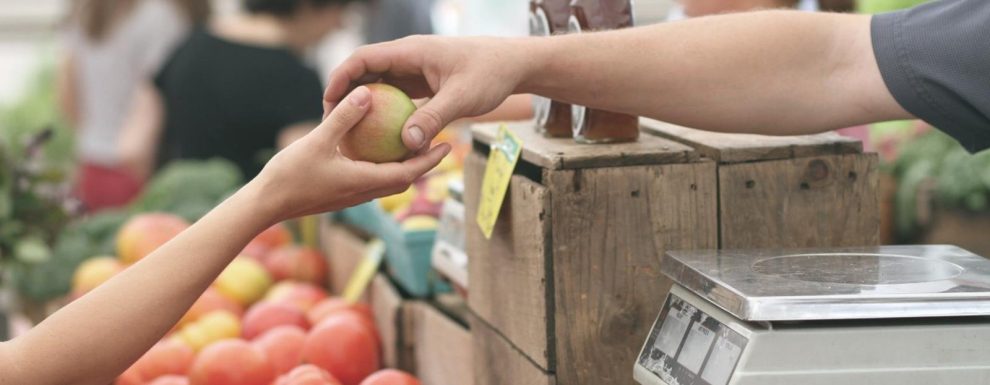WITH the help of another Brecon-based Liberal Democrat, on Wednesday (May 24), the Welsh Government voted down an attempt to secure Wales’s food security.
Shortly before the last Senedd election, former Brecon MS Kirsty Williams abstained in a key vote on the Welsh Government’s efforts to designate all Wales’s rivers at risk of agricultural pollution. Her vote contributed to the Liberal Democrat’s heavy defeat in May 2021.
Now, Jane Dodds, briefly an MP and now – following her party’s dismal performance in the last Welsh Parliamentary elections – a Regional MS for our region, abstained and spared the Welsh Government’s blushes over more legislation that, this time, would benefit rural Wales.
FOOD BILL WOULD BENEFIT ALL OF WALES
With Pembrokeshire’s rural economy under pressure from factors beyond local control, the Bill would at least have offered some hope for the future to hard-pressed farmers and those who depend on a vibrant agricultural economy.
The Food Bill (Wales), introduced by Conservative MS Peter Fox, aimed to
shorten food supply chains, secure Welsh produce’s future, and improve food production’s carbon footprint.
It also introduced a statutory obligation on the Welsh Government to ensure those steps happened.
The Welsh Government, never keen on ministerial responsibility, took against the Bill from the outset.
Its part-time Rural Affairs Minister Lesley Griffiths much prefers how Government works “the Welsh Way”. That is without accountability and spread out over countless Welsh Government appointed thinktanks, working groups, community organisations, and third-sector bodies. That way, nobody can blame the Welsh Government when, as they often do, things go wrong.
BILL PROMOTED FOOD SECURITY
The Food Bill’s proposals were uncontentious. It aimed to shorten food supply chains, maintain Welsh food production, increase Welsh food security, and encourage sustainable procurement by public bodies. Those policies should appeal to a Government focused on greenwashing Wales.
And, to an extent, the Welsh Government doesn’t disagree. However, it doesn’t want responsibility for ensuring a consistent, transparent, and coherent approach.
Even less does it want to disrupt a system that, in 2022, convened a Welsh food security conference without inviting anyone involved in food production or supply.
Accepting Lesley Griffiths’s opinions at face value, the Welsh Government doesn’t believe food security is an issue. Last year, she claimed food security was not an issue in Wales.
Despite international events causing shortages and driving up primary production, processing costs, and prices for hard-pressed families, Ms Griffiths remains oblivious to the obvious.
The UK already depends on imports for 40% of its food consumption. That is unsustainable in the medium-to-long term. During prolonged volatility and uncertainty, failing to respond to it isn’t very smart.
It makes sense to bolster Wales’s food production, reduce our reliance on imports, and encourage short local supply chains. It’s a win-win-win. Anchoring an important economic sector, helping achieve environmental goals, and delivering cheaper and better food to Wales.
Not in the Welsh Government’s book.
Caught between competing priorities, Labour prefers ignoring Wales’s rural economy in favour of flashy announcements of more underfunded or unfunded “green” initiatives. On the basis it’s better to travel hopefully than to arrive, the Welsh Government is going around in circles, unable to forge a coherent economic strategy that compromises what it wants to do to do what it must do.
LABOUR MEMBERS BACK AIMS BUT VOTE AGAINST THE BILL
One criticism of the Food Bill from Labour backbencher Huw Irranca-Davies was particularly telling.
Huw Irranca-Davies praised the Food Bill’s ambition. He requested that the Welsh Government bring the “good pieces” in without legislation.
Then he said: “This is a Government Bill; you’ve put forward a Government Bill. This is not a classic backbencher’s Bill.”
That raises the obvious question: why hasn’t the Welsh Government introduced one?
The answer to that is contained in Lesley Griffiths’s subsequent remarks.
Firstly, the Welsh Government fears it would affect the all-powerful Wellbeing of Future Generations Commission. That can’t be allowed.
And secondly: “I believe that a community-focused approach to reshaping the food system, using our convening power as a Government and our ability to support local action, is the best way to address the challenges that have been identified.”
In short: we like things as they are. Unfocused but indirectly controlled by Welsh Government priorities, tick box compliance, and organisations dependent on Welsh Government funding.
NATIONAL FOOD STRATEGY ESSENTIAL
Local MS Sam Kurtz said: “We need a national food strategy, anchored in legislation, with guaranteed, statutory safeguards that ensure everyone has access to top quality home-grown Welsh produce.
“By working in parallel with the Welsh Government’s Agriculture (Wales) Bill and the sustainable farming scheme, we can enact an all-encompassing food strategy that safeguards and stabilises Wales’s food supply chain to benefit everyone.”
Up against the status quo of endless strategies, quangos, initiatives and a tame Senedd Labour Party, the Bill fell by one vote. The one vote from Jane Dodds. She abstained.
Afterwards, Peter Fox expressed his disappointment: “It is incredibly disappointing that both Labour and the sole Liberal Democrat in the Welsh Parliament failed to back the Food (Wales) Bill today. In light of Putin’s illegal invasion of Ukraine, food security should be at our minds’ forefronts.”
Mr Fox continued: “Be in no doubt, this was a vote against increased food security, a vote against creating a more joined-up food strategy and a vote against urgent action to tackle food poverty.
“At the very least, Labour and the Lib Dems have kicked the can very far down the road to the detriment of the people of Wales.
“Rest assured that Welsh Conservatives will continue to push hard for policies that benefit our farmers and rural communities, no matter the Labour Government and Liberal Democrats’ indifference.”
Local MS Sam Kurtz told The Herald: “Labour and the Lib Dems may talk a good game about ending food poverty and supporting our food supply chain, from gate to plate. But when the opportunity was in front of them, through Peter Fox’s Food Bill, they decided not to act.
“I share the disappointment felt by Peter, by the countless stakeholders who were advocating for this bill and by the whole of Wales; as we all miss out on the opportunity to rebalance our political relationship with food.”
















